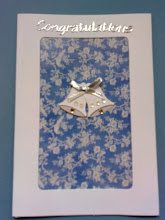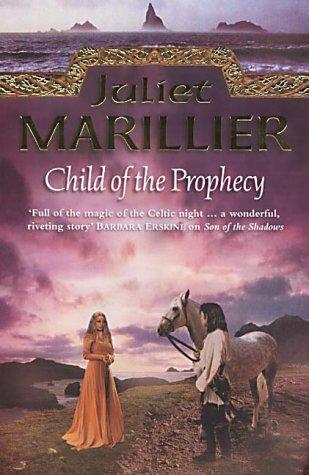
In turn my favorite reads are:



 Whereas Little Lady decided on a glorious glittery butterfly:
Whereas Little Lady decided on a glorious glittery butterfly: Gorgeous would not lt the brush near him. Of course none of it lasted very long.
Gorgeous would not lt the brush near him. Of course none of it lasted very long. We spent the rest of the day at my mums loafing about the house and the evening at my aunties who had invited us over to have dinner with her and some second cousins who were also visiting. Got home and put the exhausted kids to bed. Now I am just trying to get the baby down wihtout much sucess - every time I turn around he jumps out of bed and runs off again. You reckon two years is old enough to swaddle him?
We spent the rest of the day at my mums loafing about the house and the evening at my aunties who had invited us over to have dinner with her and some second cousins who were also visiting. Got home and put the exhausted kids to bed. Now I am just trying to get the baby down wihtout much sucess - every time I turn around he jumps out of bed and runs off again. You reckon two years is old enough to swaddle him?It can be annoying, but I love these questions. Often they show a real ignorance in people and sometimes a lack of manners – there are ways of asking personal questions about another person without offending them or making them feel uneasy (“What is that one your head?” or as one man put it “Do you have to wear that to make yourself unattractive” are not the most tactfully put questions).
I much prefer someone who is at least interested enough to ask those questions in comparison to people who purposefully remain ignorant and continue to dislike or hold prejudice against what they do not understand. Also it gives me the chance to engage in one my most favourite things, and the reason I think we are here – dawah. Most people who make the mistake of asking me the above questions then sit there wondering how to get me to shut up.
This week I was asked by a colleague, why I wear hijab and whether I take it off when I got home. I explained that Islam continues the tradition of the practising Christian and Jewish people whose laws also encourage their women to cover their head. She asked me what the big deal was about hair and I reminded her that in the bible it says that a woman’s hair is her crowning glory. She wanted to know if we have to cover in front of family and I explained about family, in-laws and others and the reasons why.
I tried to explain that it is not just about sexuality and men. One friend told a work colleague in a panic when asked about why she wore hijab, that it was to prevent rape. In contrast another friend (my bestest) when asked rudely by a hostile colleague (who she knew was a religious Christian) why she wore “that”, explained because as a good Muslim she loved the Virgin Lady Mary and wanted to emulate her modesty and then explained about the Muslim command for modesty (the rude lady was left gobsmacked). I explained to her that Islam gives women the freedom to engage in public life in order to serve others, but that we are commanded to ensure that relations between men and women should be characterised by purity. She was surprised when I explained about men having to dress modestly and lower their gaze. She then asked about niqab and I explained about taking purity to the next level and making choices about how you engage with the world. By this point she was ready to change the subject but looked a little less contemptuous of the whole hijab issue.
It also reminded me of a very kind colleague at my previous office who I considered to be an intelligent and fairly knowledgable man who asked me after the Jack Straw niqab affair whether women wore niqab because their husbands made them. I was amazed that he could think this, but it was a perfectly innocent, genuine question. I explained how tough a woman had to be to wear niqab and how some of them wore it even when their husbands disliked it. That most of the niqabi's I knew were either scholars or business-women, many with degrees.
I'm glad he asked. I'm glad my collegue asked yesterday. At least it gives me a chance to put my side of things and explain how hijab is nothing new but a continuation of what came before and is familiar to them.





 By size and type (these are all miniature perfume bottles which mostly my sisters have given me or I have picked up from boot sales):
By size and type (these are all miniature perfume bottles which mostly my sisters have given me or I have picked up from boot sales):










 In the end, out of sheer desperation, my uncle contacted some senior police officers (no-one knows whether to trust the local police or not) who it seems have traced the phone signals to Peshawar rather than the lawless tribal areas by the Afghan border where even the police don’t go. They have headed up to Peshawar , perhaps with the intention of making a raid and I am absolutely terrified for both my missing uncle – who knows what state he is in and for my other uncle who is taking such a big risk.
In the end, out of sheer desperation, my uncle contacted some senior police officers (no-one knows whether to trust the local police or not) who it seems have traced the phone signals to Peshawar rather than the lawless tribal areas by the Afghan border where even the police don’t go. They have headed up to Peshawar , perhaps with the intention of making a raid and I am absolutely terrified for both my missing uncle – who knows what state he is in and for my other uncle who is taking such a big risk.




 I wore this with a plain black abaya and a electric blue shawl the same colour as the beads (the picture doesn't pick up the colour).
I wore this with a plain black abaya and a electric blue shawl the same colour as the beads (the picture doesn't pick up the colour).A tip I picked up is that once I have tied the knot in the elastic or plastic wire, I paint the knot with clear nail-varnish to stop the knots slipping out. Whilst I was threading, I managed to listen to some of this very academic lecture by Shaykh Hamza Yusuf called How the Holy Quran was Compiled.










 She also bought the kids activity sets (sticker books, colouring pages and posters to paint). I had planned to let them have a look and then hide them until a more appropriate moment. I stood no chance, whilst I spoke to my friend and sisters, the kids took the activity packs apart and also gorged on the lovely Thornton's chocolates (which were for ME) without asking.
She also bought the kids activity sets (sticker books, colouring pages and posters to paint). I had planned to let them have a look and then hide them until a more appropriate moment. I stood no chance, whilst I spoke to my friend and sisters, the kids took the activity packs apart and also gorged on the lovely Thornton's chocolates (which were for ME) without asking.
Felt surrounded by kindness today.
Keeping in mind some of the difficulties/upset we have been experiencing with family, it has been a relief that home life has been fairly calm. My focus on the moment is on the children's tarbiyyah and education. The most important part of this is teaching Little Lady Quran, which has been a big struggle for both of us in the past few weeks, especially with lapses on my part. My husband has been helping me the last week or so by reminding us both that it is Quran time (or sabaq time as we call it). We are progressing slowly but well having learnt the alphabet, the vowel sounds and the different forms of the letters when they join to form a word. Some of the letters can be confusing (the different forms of Ain ﻌ and Ha ﺤ for example) and to get round this I have been picking a letter that she is making mistakes with and writing all of the forms of it for her to copy (ﻉ ﻊ ﻌ ﻋ). Hopefully this will also come in useful later if she learns to write Arabic or Urdu insh'Allah. A few people have questioned whether it is possible for me to teach Little Lady at home well enough (with the best if intentions) and this has undermined my confidence a little. Although my dad teaches Quran at the mosque, I do not want to send her there and I don't think he will have time to teach her at home. I am happy with the way she is progressing, but I worry that if there are mistakes in my mukhaarij (pronunciation) I will pass these on. The other option we have looked at is getting a teacher to come to our home. My husband will be looking into this .
Our other problem is concentration, I can be dreamy and scatty at the best of times and she is certainly my daughter! I find myself asking her to come back to the page, to concentrate, to put her finger after every word or letter at times which is hard work for me and annoying for her. I wonder if cartoons are contributing to this, because as soon as she comes home from school she is on Youtube watching Tom and Jerry. I plan to put a password on the computer as a five-year old should not be using the internet unsupervised anyway. I think I will be looking at gentle ways to improve concentration, really though, I am realising it is all about persistence, determination and practice.
We are also practising the names of Allah (she has learmed about eight) and this is one part we both enjoy. I want to teach her Al-Fatihah insh'Allah which she recognises snatches of because her dad makes her recite it at bedtime. I will have to think about how to start with this.
On the schooling side, she is still getting lots of homework to support what she is learning in class which is good but maybe a bit too much for her age (I didn't get homework till high school). At home I am getting her to practice writing her numbers and working on her handwriting and spelling. She can simple books read herself now mash'Allah which is a milestone and something I am immensely proud of her for (I always felt that once my children learnt to read, the world would open up for them and they could begin to choose their own paths and interests in learning).
Sometimes I feel a bit guilty that I keep her busy this way (especially as I don't believe in hot-housing children), but I feel like I have to look at longer-term goals. Our local high school is the one I went to and I am adamant my children will not go there (low standards, high delinquency, smoking, truancy and general low expectations). So my options are Islamic School which I may not be able to afford and often don't meet standards of teaching, trying for another school which is a very long shot due to over-subscription or grammar schools which our area have two of the best in the country (plus they are gender-segregated). Maybe home-schooling would be a last resort if nothing else worked.












